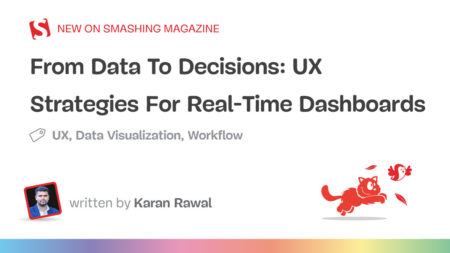Apple announces Foundation Models framework
The Foundation Models framework will enable any app developer to utilize Apple Intelligence’s on-device processing for their apps. Apple Intelligence leverages Apple’s silicon processors to be able to process data without it leaving the device, ensuring better data privacy for users.
According to Apple, Automattic’s journaling app Day One utilized the framework to add intelligence features that are privacy-centric.
“The Foundation Model framework has helped us rethink what’s possible with journaling,” said Paul Mayne, head of Day One at Automattic. “Now we can bring intelligence and privacy together in ways that deeply respect our users.”
The framework natively supports Swift, and includes capabilities such as guided generation and tool calling.
Mistral launches its first reasoning model
Magistral is a reasoning model that excels in “domain-specific, transparent, and multilingual reasoning,” according to the company.
It comes in two different sizes: Magistral Small is a 24B parameter version and Magistral Medium is a more powerful version for the enterprise. Magistral Small is also open source so that the community can build upon its architecture and reasoning processes.
New Relic adds MCP support in AI Monitoring solution
What this means is that developers who are building agents with MCP will be able to get insights into the life cycle of an MCP request, which encompasses invoked tools, call sequences, and execution durations.
With this new capability, developers will be able to correlate MCP performance with the entire application ecosystem. It will enable them to track usage patterns, latency, errors, and performance, so they can optimize their MCP services.
ArmorCode releases AI Code Insights
This latest offering utilizes the company’s agent Anya, which has contextual understanding of a customer’s code repositories.
Its key benefits include the ability to better prioritize remediation efforts, surface hidden assets, manage change risks, understand code ownership, and have proactive AI exposure management.
“While development velocity has skyrocketed, security teams are often flying blind, buried in alerts without understanding the actual risk lurking within their code repositories,” said Mark Lambert, chief product officer at ArmorCode. “AI Code Insights changes that. We’re providing the crucial context – the ‘what, who and how’ – behind the code and vulnerability. This allows organizations to finally cut through the noise, prioritize effectively, and proactively secure their most critical assets before they become liabilities. It’s about making existing security investments work smarter, not just harder.”
Amplitude launches AI agents for product development
These new agents can assist with improving checkout conversion, feature adoption, and user onboarding. It can also look for signs that a user is ready to upgrade so that it can send them special offers.
With Amplitude’s AI Agents working around the clock, product development shifts from a slow, step-by-step process to a high-speed, multi-track system where strategy, analysis, and action can happen at the same time,” said Spenser Skates, CEO and co-founder of Amplitude. “This isn’t just about doing what you’ve always done, faster. It’s about doing what you wouldn’t, couldn’t, or didn’t know how to do before.”
OpenAI o3-pro available in the API
OpenAI has announced that o3-pro can now be accessed through the OpenAI API. Additionally, Pro and Team users can now use o3-pro in ChatGPT.
The pricing for using o3-pro in the API will be 87% cheaper than o1-pro, and the price of o3 is also being cut by 80%. “We optimized our inference stack that serves o3. Same exact model—just cheaper,” the company wrote in a post on X.
Zencoder launches end-to-end UI testing agent
Zencoder has announced a public beta for Zentester, its new end-to-end UI testing AI agent.
Zentester imitates how humans behave when interacting with web applications, such as navigating the layout, and identifying and using interactive elements. It does this by combining images (screenshots) with DOM (snapshot) information.
As it runs through test scenarios, it generates test artifacts that capture the actions performed and the expected visual and functional outcomes.
Databricks adds new tools like Lakebase, Lakeflow Designer, and Agent Bricks to better support building AI apps and agents in the enterprise
Lakebase is a managed Postgres database designed for running AI apps and agents. It adds an operational database layer to Databricks’ Data Intelligence Platform.
Coming soon as a preview, Lakeflow Designer is a no-code ETL capability for creating production data pipelines. It features a drag-and-drop UI and an AI assistant that allows users to describe what they want in natural language.
It is based on Lakeflow, the company’s solution for data engineers for building data pipelines. Lakeflow is now generally available, with new features such as Declarative Pipelines, a new IDE, new point-and-click ingestion connectors for Lakeflow Connect, and the ability to write directly to the lakehouse using Zerobus.
Agent Bricks is Databricks’ new tool for creating agents for enterprise use cases. Users can describe the task they want the agent to do, connect their enterprise data, and Agent Bricks handles the creation.
Trustwise launches trust layer for AI agents
Its new Harmony AI solution includes six shields that secure AI across different models, agents, and clouds. They include an MCP Shield, Prompt Shield (to prevent injection attacks and hallucinations), Compliance Shield, Brand Shield (for maintaining brand tone and persona), Cost Shield, and Carbon Shield (for reducing carbon footprint of AI).
“Developers aren’t just securing text anymore, they’re securing actions,” said Matthew Barker, head of AI research at Trustwise. “That demands real-time controls that help both developers and security teams monitor how agents think, decide, and act. Harmony AI acts as a runtime shield, enforcing security and control directly in the decision loop and preventing drift before agents go off course.”
Read last week’s AI updates here.
The post This week in AI dev tools: Apple’s Foundations Model framework, Mistral’s first reasoning model, and more (June 13, 2025) appeared first on SD Times.
Source: Read MoreÂ
